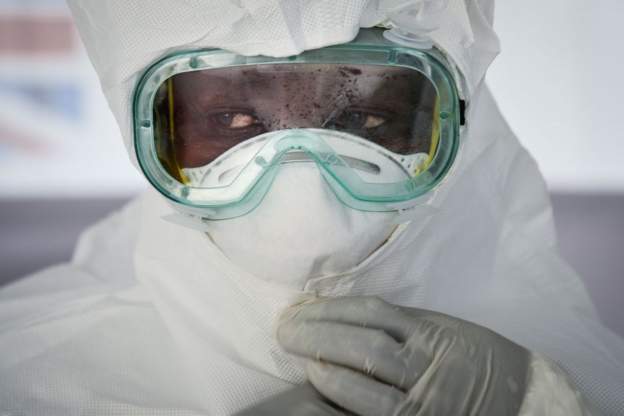
Uganda's authorities have reassured the public that they have the situation under control (Photo: BBC)
Health authorities in Uganda said three more Ebola patients have died bringing the total number of deaths to four since declaration of the outbreak last week.
The country’s ministry of health stated in its weekly update that, eleven cases have been confirmed so far.
Seven other deaths are being investigated to see if they’re linked to the outbreak in Mubende west of the capital Kampala.
The World Health Organization says the Ebola Sudan strain which is present in Uganda is less transmissible and has shown a lower fatality rate in previous outbreaks of a different strain, Ebola Zaire.
But it killed nearly more than 2,000 people in the neighboring Democratic Republic of Congo between 2018 and 2020.
What you should know about Ebola
Ebola is a viral haemorrhagic fever that was first discovered in the Democratic Republic of Congo (DR Congo).
Five of the virus species are known to cause disease in humans — Zaire, Sudan, Bundibugyo, Reston and Tai Forest.
The first three have resulted in serious outbreaks in Africa.
The virus’ natural reservoir animal is suspected to be a species of fruit bat, which does not itself fall ill but can pass the disease on to primates, including humans. Humans become exposed to the virus if they kill or butcher infected bats for food.
Among humans, the virus is passed on by contact with the blood, body fluids, secretions or organs of an infected or recently deceased person.
Those infected do not become contagious until symptoms appear. They become more and more contagious until just after their death, which poses great risks during funerals.
Death rates are high, at around 50 percent on average of those infected, and up to 90 percent for some epidemics, World Health Organization (WHO) data show.
Following an incubation period of between two and 21 days, Ebola develops into a high fever, weakness, intense muscle and joint pain, headaches and a sore throat.
The initial symptoms are often followed by vomiting and diarrhoea, skin eruptions, kidney and liver failure, and sometimes internal and external bleeding.
Merck’s Ervebo vaccine, the first Ebola jab approved by the US Food and Drug Administration (FDA) in December 2019, has been shown to be highly effective in protecting people from the Zaire strain.
US group Johnson & Johnson has also reported promising results against the Zaire strain of its two-dose Zabdeno vaccine, which has been authorised for use in the European Union.
In terms of treatment, the WHO in August recommended two life-saving medicines, Inmazeb and Ebanga, which were successfully trialled during Ebola outbreaks.
Support Eye Radio, the first independent radio broadcaster of news, information & entertainment in South Sudan.
Make a monthly or a one off contribution.
Copyright 2024. All rights reserved. Eye Radio is a product of Eye Media Limited.